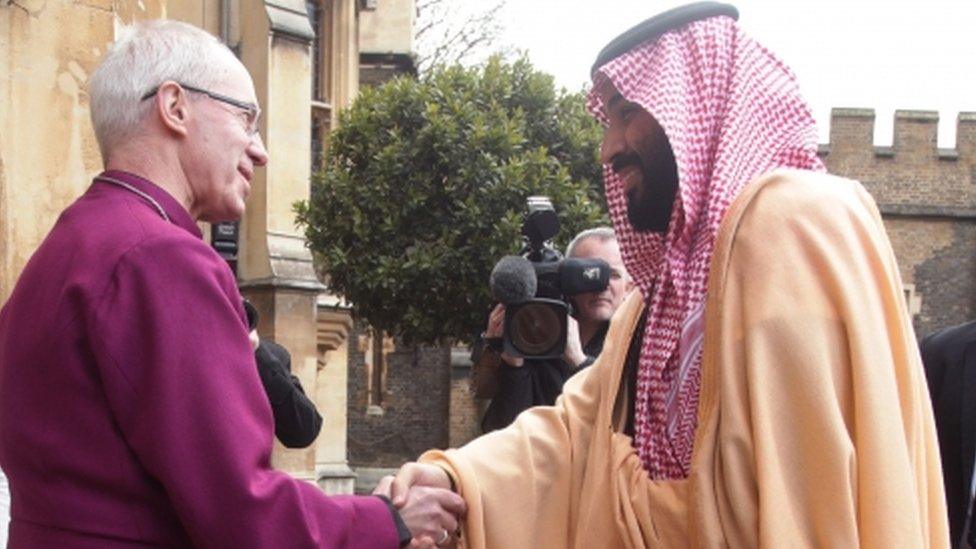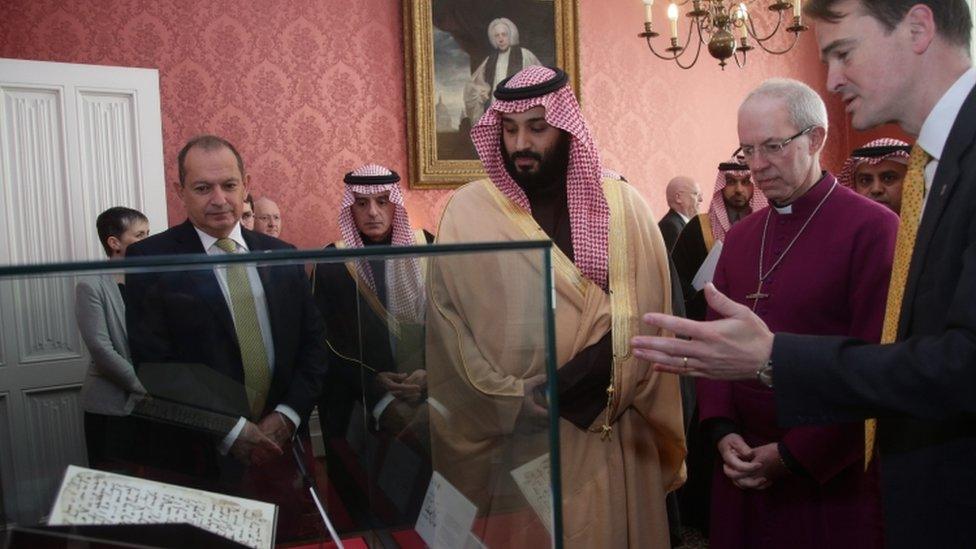Archbishop of Canterbury meets Saudi's crown prince
- Published

The Archbishop of Canterbury has met Saudi Arabia's crown prince on the second day of his visit to the UK.
Justin Welby saw Mohammed bin Salman at Lambeth Palace in London, as concern over Saudi Arabia's role in the war in Yemen continued to cause controversy.
Amnesty International UK said it hoped the archbishop had raised concerns about human rights and the deaths of thousands of Yemini citizens.
The Saudi royal held further talks with Theresa May.
The meeting with the archbishop came after the crown prince visited Theresa May at Downing Street on Wednesday to lay out plans for a package of mutual trade and investment opportunities worth up to £65bn.
The prime minister also raised the situation in Yemen and held further talks with the crown prince on events there and in Iran during a private dinner at her official country residence, Chequers, on Thursday.
But Amnesty International UK's director Kate Allen said she hoped the archbishop used his meeting with Mohammed bin Salman "as an opportunity to personally communicate the church's concerns over the thousands of Yemini civilians killed and injured" in air strikes by a Saudi-led multinational coalition - backed by the UK and US - that is battling the rebel Houthi movement.
"We also hope the archbishop was able to express concern over the ongoing jailing of critics of the Saudi government," she said.

The archbishop and the crown prince view one of the earliest surviving records of the Qur'an
The first day of his visit saw the crown prince have an audience with the Queen, and dinner with the Prince of Wales and Duke of Cambridge.
Yemen has been embroiled in a bloody civil war since 2015, when rebels took over the capital city of Sanaa.
The crown prince has been the driving force behind a modernisation programme, Vision 2030, in Saudi Arabia, but the reforms have been dismissed as a "mirage" by human rights campaigners.
- Published6 October 2020

- Published8 November 2017
